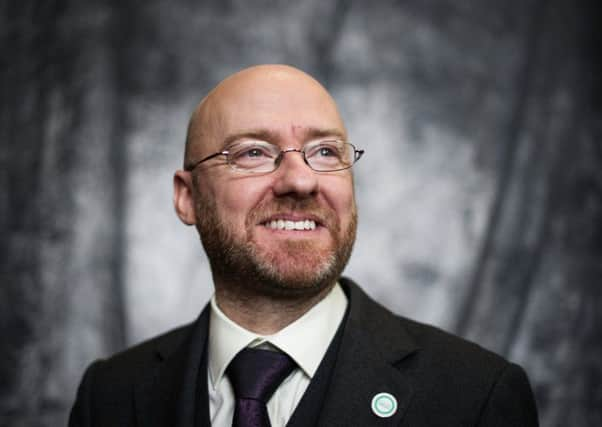Analysis: Why are the Greens standing so few candidates at the election?


The party was accused yesterday of doing a ‘disservice’ to voters after notifying broadcasters that they would be standing fewer than 10 candidates in Scotland.
Today, the pro-independence party confirmed that they would stand in just three seats in Scotland on the June 8th vote.
Advertisement
Hide AdAdvertisement
Hide AdCo-leader Patrick Harvie will stand in Glasgow North, while there will be Scottish Green candidates in Falkirk and Edinburgh North and Leith.
All three seats the Greens are targeting are currently held by the SNP, and the party rejected claims they were standing aside for Nicola Sturgeon’s party.
Is there merit in the argument that the Greens are helping their colleagues in the nascent indyref2 movement? Or are their reasons more practical?
The Context
It was only two years ago that voters went to the polls in a general election, something the Greens say is a key reason for their withdrawal from a number of seats.
In 2015, the Scottish Greens stood in a record 32 seats across the country, but only managed to attract around 39,000 votes.
The party was evidently positive about sharing in some of the benefit of the post-referendum political landscape in Scotland.
It was that constitutional issue that allowed the SNP to dominate the electoral map in the country in 2015, winning 56 of 59 MPs.
Scottish Green candidates also put in a good showing at last year’s Holyrood elections, beating the Liberal Democrats into 5th place.
Advertisement
Hide AdAdvertisement
Hide AdThe party vastly improved their standing from the previous parliament, and now arguably hold the balance of power with six MSPs.
They haven’t been immune to criticism, however, being targeted by fellow opposition parties for backing the SNP’s first budget as a minority party since the election.
Reaction
Reaction the Greens’ announcement that they would significantly scale back their challenges at the election was swift, and largely condemnatory.
The Conservatives said that the party should withdraw from Scottish specific TV debates that broadcasters have planned ahead of the election.
Scottish Labour’s Director of Communications Alan Roden tweeted: “What an absolute disgrace the @scotgp are. Only standing in THREE seats in a bid to help their SNP masters.”
Labour later said that the only way to achieve a fairer, greener Scotland, was to vote for their candidates over the SNP.
There has been no official reaction from the SNP themselves, but it is hard to imagine Nicola Sturgeon’s party will be anything other than relieved at this news.
Around 1300 people voted for the Scottish Green candidate in Moray in 2015, and with the seat of Angus Robertson seemingly under threat, the SNP will hope that those Green voters chose to back a pro-independence candidate in Mr Robertson.
Advertisement
Hide AdAdvertisement
Hide AdThe SNP felt that in a number of areas in 2016, the Green voters could have backed their SNP candidate and allowed the party a better chance at retaining their majority.
Reasoning
There does seem to be more, however, to the Scottish Greens decision to take a minimalist approach to the election than a desire to help their colleagues in the cause of separation.
Firstly, it is inevitable that the party will have markedly less success in the general election than at a Holyrood or a local authority vote.
The First Past the Post system is not friendly to small parties like the Greens, and their chances of winning a single seat are slim to none at best.
There is also the more pressing matter of the potentially prohibitive cost of standing in dozens of seats across the country.
Patrick Harvie is crowdfunding for his campaign in Glasgow North, as most politicians are, and if he had 59 colleagues to share money with, his ability to mount a serious challenge would be in doubt.
Scottish Green candidates would struggle to hold their £500 deposit in all but a handful of seats, and losing around £25,000 in lost deposits is clearly not what the party considers a good use of party resources.
The party no doubt consider the inevitable backlash as a price worth paying for avoiding the expensive indignity of losing heavily across the country.
